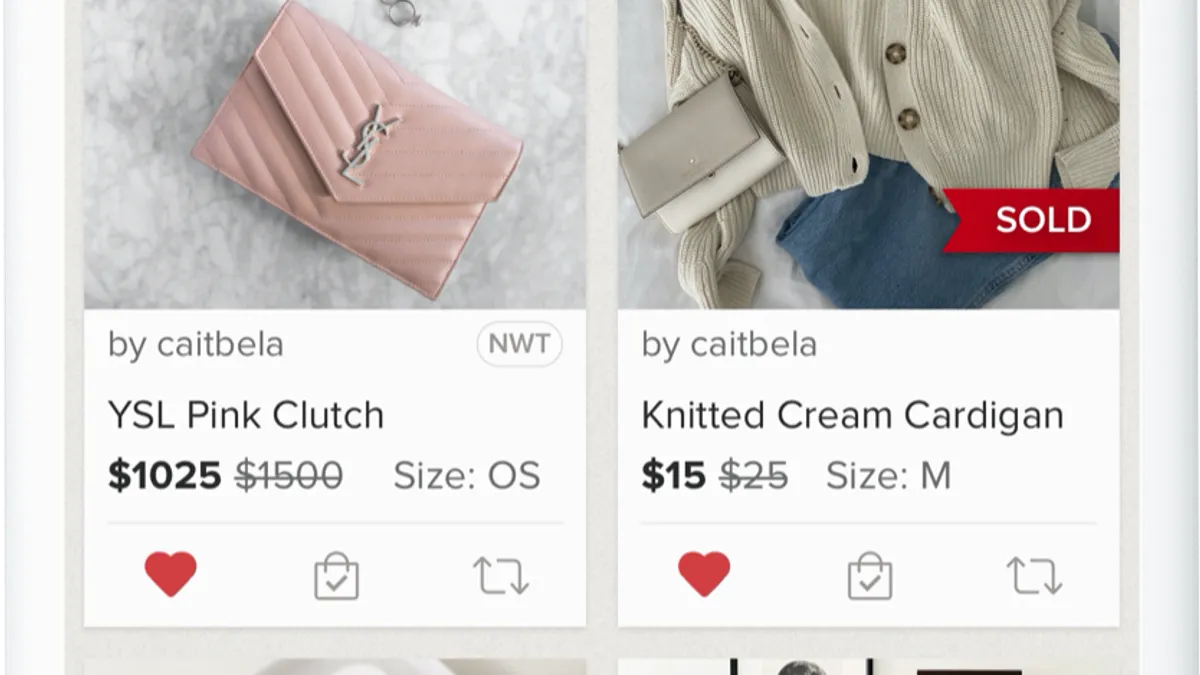Poshmark has apparently learned a lesson in consumer behavior: Customers don’t always take kindly to higher prices from added fees.
The resale marketplace is abandoning new seller fees just a few weeks after implementing them, based on seller feedback as well as signs that they led to fewer sales, according to a letter to sellers from Poshmark founder and CEO Manish Chandra. The idea of the fee change was to balance fees “between sellers and shoppers,” but customers ended up spending less on purchases, according to Chandra. That meant less for sellers, he said.
“The outcome of the change did not meet our expectations and I sincerely apologize for the disruption and impact that this has had on you,” he said.
The resale platform is also scrapping “Posh Pass,” a pilot program that was available to Posh Ambassadors — those who make a minimum number of sales, ship quickly and are highly engaged on the social-oriented marketplace. Posh Pass, which offered discounted shipping of $5.95 fully covered by Poshmark, had been free for qualified U.S. sellers through Dec. 31. The company never responded to previous questions about whether the plan was to have sellers eventually pay monthly or annual fees to participate.
Because Posh Pass had been designed to go hand-in-hand with the new fees, that will also end, though the company will “continue to explore similar programs that will benefit our community in the future,” Chandra said.
The resale site’s new fee rules had applied to U.S. sellers as of Oct. 3 and were to be implemented in Canada at a future date. Sellers were charged 5.99% of an order total, plus $1 for orders under $15; $2 for orders between $15 and $50; and $3 for orders $50 and over, per a company blog post.
As of Oct. 24, however, the company will revert to its original policies: 20% charged for sales of more than $15 and $2.95 for sales $15 or less. For a few days, between Oct. 24 through Oct. 27, sellers are getting a rebate on some of the now-discontinued fees.
Finally, Postmark is removing a buyer protection fee and sticking with its “Posh Protect” policy, which gives customers a full refund only under certain circumstances, but at no added cost. As part of its changes, the company had instituted buyer protection fees that rose with the price of an item.
Wrangling over fees is perennial for marketplaces. Poshmark rival Mercari earlier this year cut seller fees entirely and similarly bumped up fees to customers. At Amazon, various changes to seller fees in the past year or so — including referral fees and fulfillment charges — have mostly resulted in increases. Two years ago, Etsy sellers went on strike following fee hikes, and last year some went on to form their own competing marketplace.















